Explore the Best AI Image Gallery
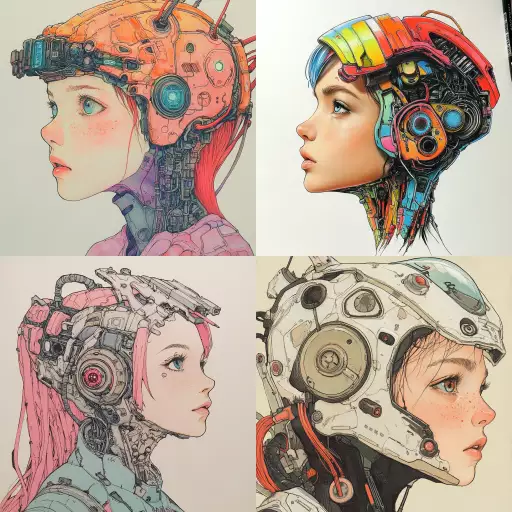
Quantum Creativity: Where Quantum Computing Meets Artistic Expression
The realm of creativity is on the cusp of a radical transformation. Driven by advancements in quantum computing, artists and designers are poised to harness the power of this groundbreaking technology to explore uncharted territories of artistic expression. From generating novel compositions to crafting immersive experiences, quantum computing promises to revolutionize how we create, interact with, and perceive art.
Unleashing Artistic Potential: Quantum Computing Applications in the Creative Industry
Quantum computings ability to process information at an unprecedented scale opens doors to a myriad of creative applications:
- Generative Art: Imagine algorithms that can generate intricate patterns, unique textures, and stunning visual compositions, pushing the boundaries of artistic imagination. Quantum computers could analyze vast datasets of art history and styles to create novel works that are both innovative and conceptually rich.
- Interactive Experiences: Quantum-powered simulations and visualizations could enable artists to craft immersive experiences that respond to user input in real time. Imagine attending a concert where the music evolves based on your emotions, or exploring a virtual world where landscapes morph according to your actions.
- Personalized Art: Quantum computing could enable the creation of truly personalized artwork tailored to individual preferences and tastes. Imagine an algorithm that generates a painting that reflects your personality, memories, or even dreams.
Ethical Considerations: Navigating the Complexities of Quantum Creativity
As with any powerful technology, quantum computing raises important ethical considerations for the creative industry:
- Authorship and Ownership: Who owns the copyright to art created by a quantum algorithm? Should artists be compensated for training data used in these algorithms?
- Bias and Representation: Quantum algorithms are trained on data, which can reflect existing societal biases. Its crucial to ensure that creative applications of quantum computing do not perpetuate harmful stereotypes or discrimination.
- Access and Equity: Quantum computing resources are currently expensive and require specialized expertise. How can we ensure equitable access to these technologies for all artists and creators?
Future Trends: The Evolving Landscape of Quantum Creativity
The intersection of quantum computing and the creative industry is still in its early stages, but the future holds immense promise:
- Quantum-Enhanced Design Tools: Imagine software that leverages quantum algorithms to assist designers in creating innovative products, architectures, and user experiences.
- Collaborative Quantum Creativity Platforms: Platforms could emerge that enable artists and designers from around the world to collaborate on quantum-powered creative projects.
- Quantum Art Festivals and Exhibitions: Dedicated events could showcase the groundbreaking works created using quantum computing, fostering a deeper understanding and appreciation of this emerging art form.
As quantum technology continues to advance, its impact on the creative industry will only intensify. By embracing the potential while addressing the ethical challenges, we can unlock a new era of artistic expression, pushing the boundaries of imagination and creativity beyond what we thought possible.

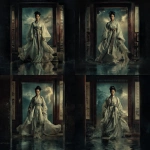


](https://images.ai-img.art/thumbnails/150/aed4d771a0a5b63bed28f6e7183dd4614c5e3e3586d300c8d879ccbb37dbfb4e.webp)
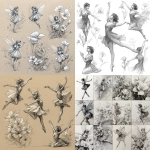
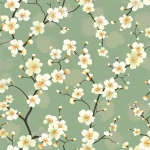




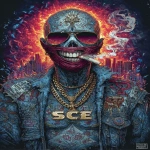


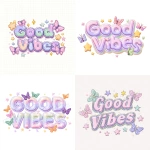
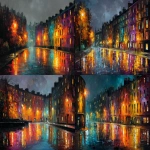



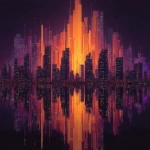
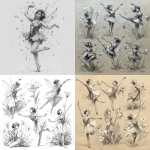
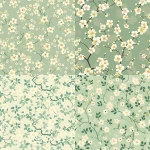
](https://images.ai-img.art/thumbnails/150/476665d1452e44d38d5b4fbf5fab4389a6131d55b7bfe8a41d7f65f66b5a9310.webp)
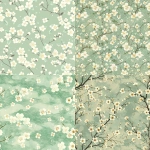


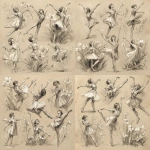




](https://images.ai-img.art/thumbnails/150/da89993919887fcf2c84af5ec12f2ac997ad0f67c8bf00fecd67ba06a1b3dc49.webp)
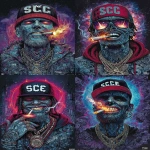

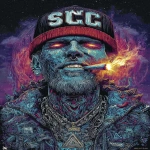








](https://images.ai-img.art/thumbnails/150/78b567a3483191dd52f3d16038b5a926e03e4066d5b301cfff023fb91a962e67.webp)

](https://images.ai-img.art/thumbnails/150/cf8299cc184c859eff89d17514689e19c7994ad29256a58ad77fa0f7218e2cff.webp)

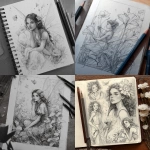

](https://images.ai-img.art/thumbnails/150/915b5e50ce61f6219cb8f764d89e2efcb8ad3a9ebd09e0670ae7dc0e2c99a8bd.webp)